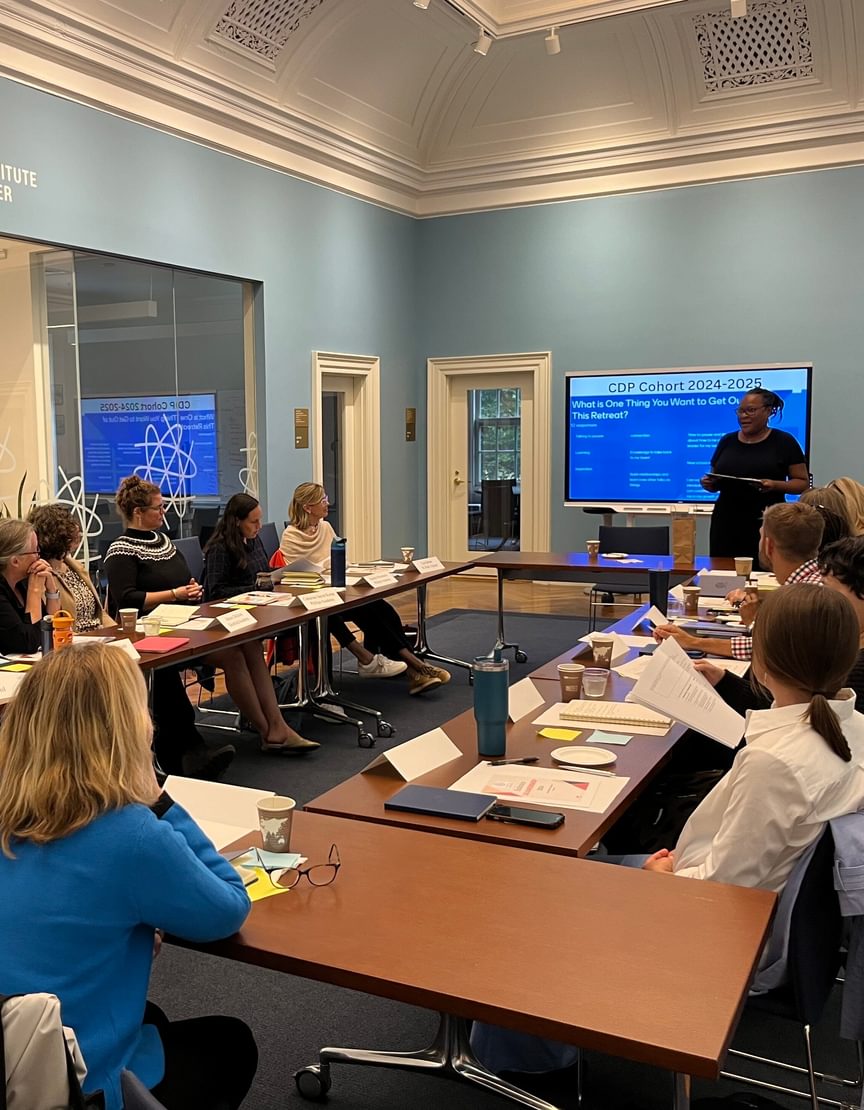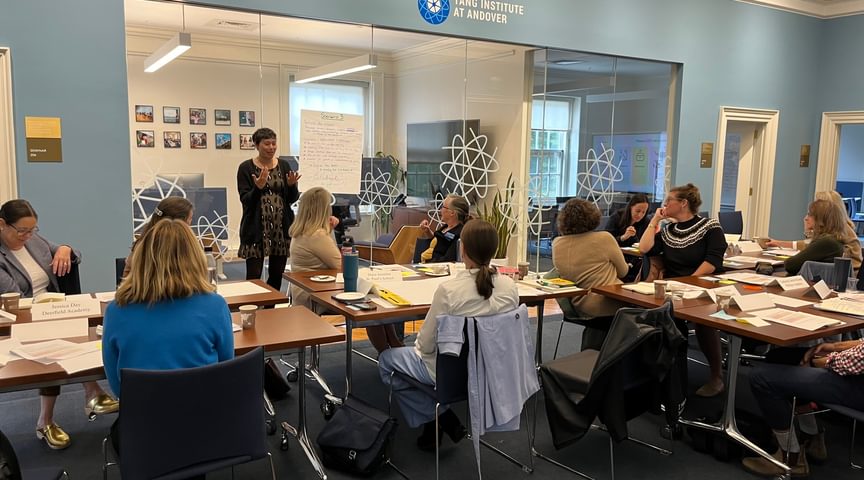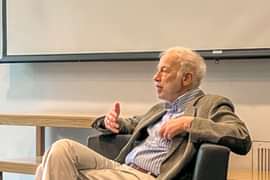
October 09, 2024
Scaling up
Andover’s leadership program expands impactby Tracy Sweet
Andover’s Leadership Development Program (LDP), established by Head of School Raynard S. Kington, MD, PhD, P’24, ’27, in 2021 to foster talent among faculty and staff on campus, has expanded to include other independent schools.
“The vision was to create a pipeline of rising leaders who would gain the skills needed for more senior roles at Andover or elsewhere,” said Kington. “Once the program was well established, I also saw an opportunity to scale it.” Now in its fourth year, the program is reaching colleagues from across New England and in California.
They traveled from St. Paul’s School, Lick-Wilmerding High School, Deerfield Academy, and Pomfret School this fall to join Andover peers and kick off a year of skill development, networking, and personal and professional growth.
“I’m a big believer in continuous improvement and shared knowledge,” Kington added. “Expanding the network will strengthen the program’s impact across secondary education. I also think it will help faculty and staff gain perspective on how other institutions operate.”
How it Works
The program is ideal for faculty members aspiring to become a department chair, a dean, or head of school or staff and administrators who want to manage a team, secure a promotion, or transfer their skills to a new role.
Interested candidates must submit a statement of interest, have the support of their manager, and be ready to fully commit to the program. The most time-intensive requirement is six to eight hours a week of executive education. The program also includes a speaker series, peer group support, personal coaching, and a capstone project that aims to address an institutional priority.

Expanding the network will strengthen the program’s impact across secondary education. I also think it will help faculty and staff gain perspective on how other institutions operate.
”Core Components
Executive education: Leadership- and management-related online courses are the most time-intensive and expensive part of the program, with fees running about $2,500 per course. Most have enrolled in courses run through Harvard Business School or the Graduate School of Education, but there are myriad other options available.
Lunch and learn series: Guest speakers (authors and scholars, technology experts, academic administrators, and other innovators) form the core of this module and have included college presidents and heads of global nonprofits as well as executive recruiters. The series also focuses on campus administration, with the philosophy that aspiring leaders should understand how their schools function. Participants explore how an endowment works, the role of governance and boards, the importance of strategic communications, how to build a fundraising case, and the competitive market for talented students.
Peer groups: While spending most of their experience as a cohort of 12 to 15, participants also form small groups. They designate time, once or twice a month, to dive more deeply into topics raised throughout the program. Some workshop ideas for their capstone project. Or, once their project is complete, they might rehearse their presentation with the group.
Personalized coaching: Optional one-on-one sessions are conducted through an online platform that includes expert guidance and tools to support career momentum—developing a personal brand, tracking progress toward career goals, curating and leveraging a network of advisors. Each participant also has up to 10 sessions with a personal coach.
Capstone project: LDP capstone projects aim to address an academic or student life priority or improve a campus operation or system. They are self-designed and can be done in pairs or independently.
One recent project expanded Andover’s crisis communications strategy and led to the “Andover Principles,” a new policy around institutional statements and societal events.
Another project addressed the challenge of getting students to read—or at least become familiar with—the school’s community standards handbook. Covering everything from academic integrity to harassment and bullying, the 100-page Blue Book is hardly a page-turner. Working with a graphic designer, two LDP partners published Core Blue, an abbreviated 12-page overview of school values and top-line expectations. While not a substitute for the handbook, it is visually appealing and easy to read on a phone or tablet.
Now and Next
LDP participants, past and present, represent a range of positions across humanities and STEM disciplines, athletics, technology, fundraising, communications, finance, and academic administration. “Bringing faculty and staff together in this purposeful learning environment creates an even richer experience for many who otherwise do not typically work together,” said Eric Roland, LDP administrator and interim director of the Tang Institute. “That type of cross-pollination happens more organically with dedicated time and focus.”
The coveted outcome is when an LDP “graduate” advances their career. In addition to those who have earned promotions on campus, two others have left Andover to lead other institutions. Kington views both pathways as positive, noting that he wants to develop a talent pool for Andover and for the industry. “It’s equally validating to see faculty and staff serve our community in a new capacity or advance themselves and the field of education more broadly.”





